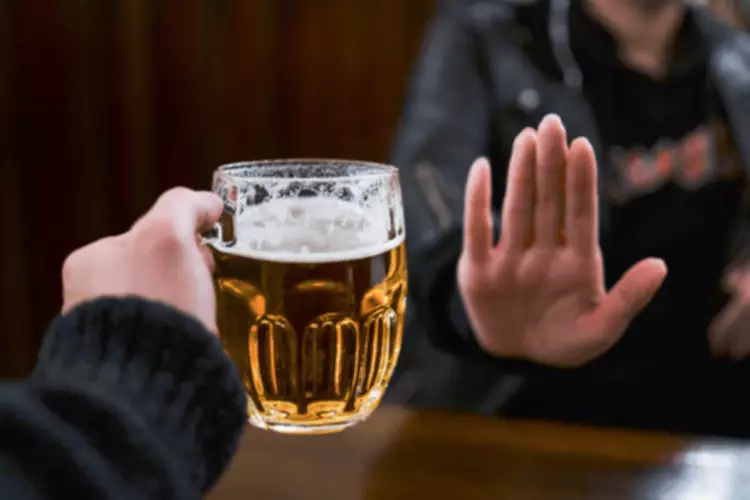
As a result, the person with a SUD doesn’t deal with the consequences of their actions. Don’t allow the disappointments and mistakes of the past affect your choices today—circumstances have probably changed. Protect your children, and don’t hesitate to keep them away from someone who drinks and does not respect your boundaries. Growing up in a home where alcohol use is common, can leave lasting scars. If you have children, it’s important to protect them from unacceptable behavior as well. Do not tolerate hurtful or negative comments addressed towards them.

Don’t Accept Unacceptable Behavior
Take time to think of different ways that you can avoid having a confrontation with the problem drinker and start doing those things. Once this happens, many end up thinking that their recovery is worthless, and they might decide to no more extended care about their recovery. Feelings of anger can be so powerful that they cloud their judgment and second-guess their reasons for being sober. You’ll meet millions of fellow Reframers in our 24/7 Forum chat and daily Zoom check-in meetings. Receive encouragement from people worldwide who know exactly what you’re going through! You’ll also have the opportunity to connect with our licensed Reframe coaches for more personalized guidance.
Domestic Violence
- The World Health Organization (WHO) warns that alcohol interferes with a person’s cognitive and physical functioning, inhibiting self-control and making it more difficult for a person to recognize when things have gone too far.
- They struggle with the idea that their alcoholic lifestyle was more exciting than their new one.
- If no one can defuse the tension, they may become an aggressor, escalating the situation to a violent one.
- Anger often leads to excessive drinking, which can then amplify anger issues.
- If you have a natural tendency to be angry, drinking alcohol may cause you to become aggressive.
You are going to have to look at yourself and know that the mean things they are saying about you are not true. It can be devastating when someone is seeking to experience intimacy with an alcoholic spouse, boyfriend or girlfriend and instead, the normal routine is for the alcoholic to criticize them. Parents, friends and co-workers are no exception to this character defect of “anger” commonly found in alcoholics. Table 2 displays demographic characteristics for the sample as a whole and separately by treatment condition. For both sets of analyses, mixed effects models (SAS 9.3) were used.
How Music Therapy Works in Substance Abuse Treatment

Additionally, when you don’t reflect on mistakes you’ve made, you’ll probably repeat them. To combat aggressive behavior when drinking, individuals should consciously seek help. It’s sometimes easier for angry people to become aggressive when they’re inebriated. A slight annoyance may turn into an infuriating problem, thanks to alcohol.
The relationship of state/trait anger with treatment alcoholism and anger outcome among alcohol users was assessed through percentage score, mean and standard deviation. When you get involved in alcoholism support group meetings, you can learn from the wisdom of others. For instance, you can go into another room, close the door and lock it. They unconsciously try to do things to those around them in order to get a negative reaction out of others. Once the “other” person is acting like a loon, then the alcoholic can point their finger at the other person’s behaviors instead of looking at their own. The sad part of all this is that we are left being angry, then they go get plastered.

- Clinically, not all alcohol-involved clients accept the philosophies and approaches of AA and other mutual-help groups.
- While anger is an emotion you experience when you feel threatened, aggression is a hostile behavior that results in physical or psychological harm to yourself or others.
- Alcohol can provoke different emotional responses for different people.
- Seeking help is essential, but remember, managing anger and recovering from alcoholism requires effort.
- One study found that chronic alcohol use decreases the function in the prefrontal cortex, which plays a key role in impulse control.
After you sign-up, you will also be presented with an entire audio lesson course that can teach you how to handle situations involving angry alcoholics. Make a commitment today to start learning how to protect yourself from the horrible effects of dysfunctional relationships. When someone allows anger to build up over time, they’re more likely to suffer an explosion. During this time, individuals often can’t reason, which leads them to risky behaviors, such as drinking again. When someone enters recovery for alcohol abuse, they usually struggle with anger problems and emotional regulation.
What’s Behind the “Angry Drunk” Phenomenon.
Typically, support groups have professional leaders, like social workers or psychologists, so you can ensure you’re getting expert advice. Unfortunately, feeling aggressive from alcohol can stem from more than one variable that’s beyond your control. Aside from existing anger issues, people can turn into aggressors when drinking for several reasons. Becoming angry or irritable when you drink is a relatively common experience — an often-cited body of research by the World Health Organization notes that aggression has a closer link to alcohol than any other kind of psychoactive drug. There are several risk factors, all of which impact people differently. But in real life, a person who loses control of their emotions when they drink is anything but entertaining.

Addiction Treatment Services
- The contemplative stage ends with the decision to make a change, yet further steps such as preparation, action, and later maintenance and likely relapse are usually needed before the addiction is controlled.
- Those who are dependent on alcohol should participate in alcohol addiction treatment to break the cycle.
We considered anger measures and indices of AA involvement as potential candidates in this regard. Alcohol dependence and significant alcohol involvement not reaching the level of dependence are often comorbid with a variety of anger-related consequences including interpersonal violence and conflict (Chermack et al., 2010). Research has strongly supported the inclusion of efficacious interventions to address this serious problem area as a part of alcohol dependence treatment (Chermack et al., 2008; Rothman et al., 2008). During-treatment improvements in the remaining anger and anger-related cognition measures predicted clients’ positive posttreatment alcohol involvement; however, predictive strength was not significantly different between treatment conditions.